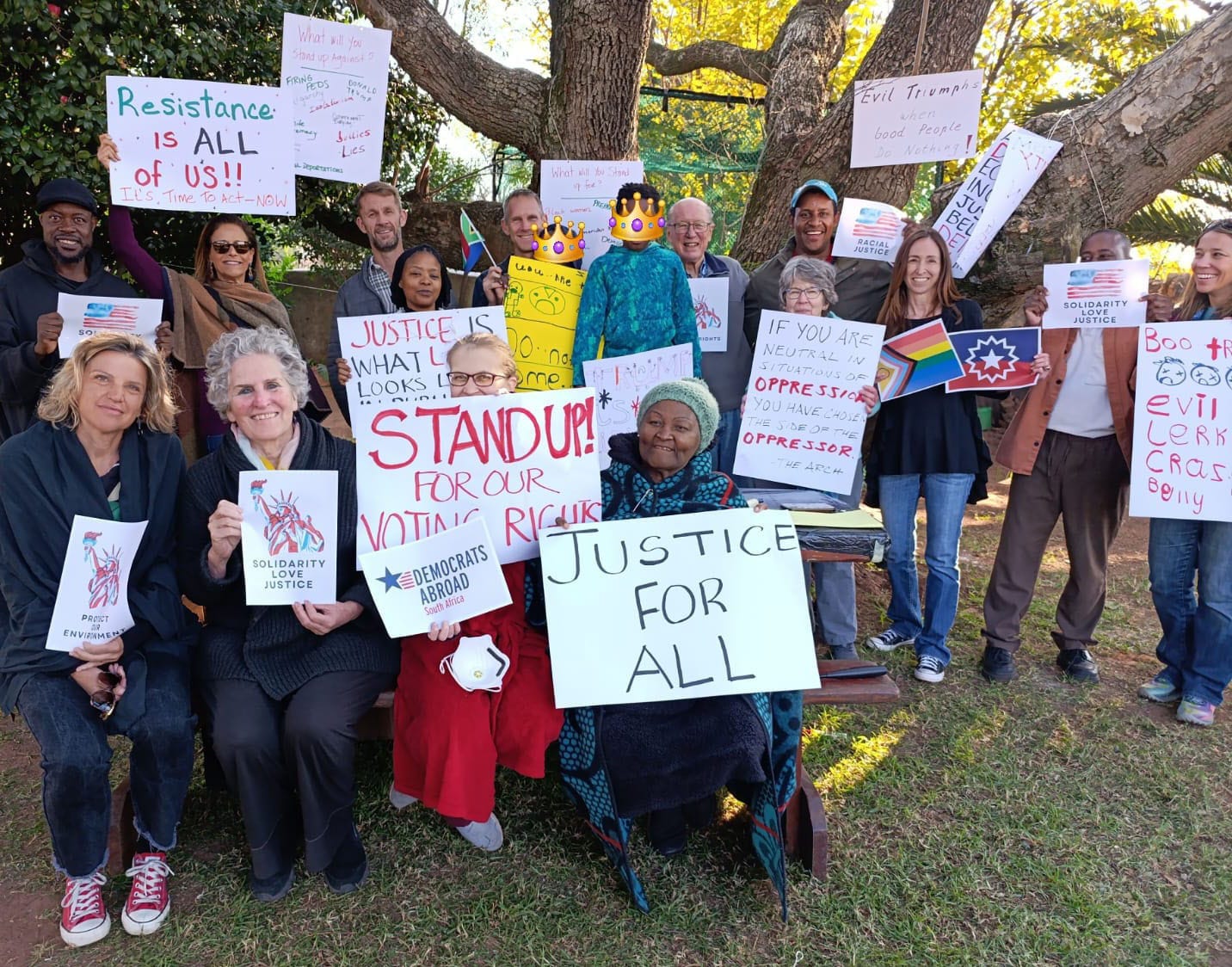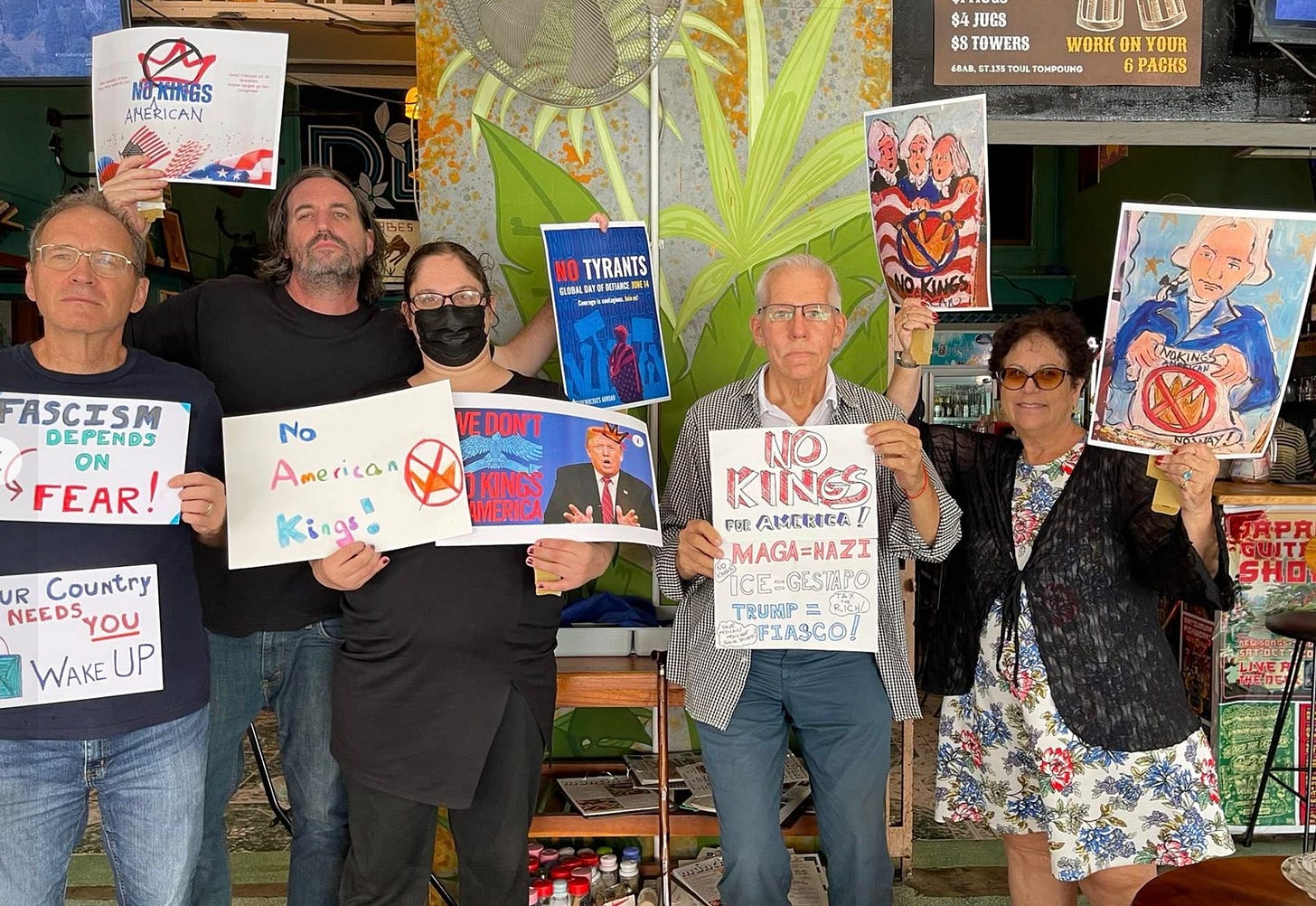
Last Saturday, hundreds of thousands of people across the United States and beyond marched for democracy during No Kings Day and the parallel No Tyrants, No Dictators demonstrations. Organizers estimated over 400,000 people took part in marches nationwide, with satellite events held in major European cities, Latin America, and parts of Africa.
While the numbers are still coming in, what’s clear is that this wasn’t a moment—it was a movement.
But now what?
Whether you walked the streets, led chants, live-streamed from home, or watched with your heart in your throat, the emotional impact is real.
And it doesn’t just end when the signs are put away. NoKings.org has suggestions.
What You Might Be Feeling Now
Post-mobilization emotions are complex. You may feel:
Pride and relief for being part of something bigger.
Sadness or grief, once the energy of the march wears off.
Anger, about what hasn’t changed.
Guilt, for not doing “enough.”
Confusion about next steps.
These emotional shifts are regular. As Dr. Thema Bryant, president of the American Psychological Association, has shared: “When people come together in protest, it activates both hope and grief. We carry both.”

Balancing the Call to Action with Real Life
The momentum of No Kings Day sparked clarity for many. You may be asking:
Should I become more involved?
Can I handle the emotional weight of staying in this work?
How do I talk to my kids about what’s happening?
What happens when my values are not aligned with my employer?
These are not small questions. Here are a few grounded responses to each:
1. Pace yourself.
You don’t need to do everything at once. Sustainable action beats burnout.
2. Family first doesn’t mean activism last.
Let your children witness you take a stand. Involve them where you can. Let them ask questions.
3. Work boundaries matter.
If your activism puts you at odds with your job, seek support from affinity groups or legal aid organizations. Protect your peace where you can.
4. Mindfulness is not a luxury—it's your compass.
Times like these demand internal clarity. Mindfulness helps you stay grounded, not numb.
What Mindfulness Looks Like in Opposition
Mindfulness is more than meditation. It’s:
Naming your emotions without judgment
Pausing before reacting to headlines or online attacks
Tuning in to your breath when your heart races
Setting daily intentions that align with your values
Protecting your energy through digital boundaries
According to a 2023 article in The Lancet, individuals involved in long-term activism are less likely to experience depressive symptoms when they practice regular self-regulation tools such as breathwork and journaling.
Teaching Through the Moment
Children and teens are watching. So are your coworkers, neighbors, and friends. This is your chance to model:
Calm under pressure
Listening without agreeing
Values over performance
Steadiness in a shaky world
This is not performative. This is practice.
Where Do We Go From Here?
You don’t need to have all the answers today. You need to stay present enough to ask better questions tomorrow.
If you’re feeling overwhelmed, disconnected, or just tired—you're not alone. You’re also not helpless.
📘 Start here:
Mindful and Motivated: The Digital Wellness Guide for Political Activists offers quick practices, scripts, and journal prompts to help you stay engaged without losing yourself in the process.
→ Download the guide or gift it to someone who needs it.
Let your care be the reason you’re still here. Let your steadiness be the legacy you build.






